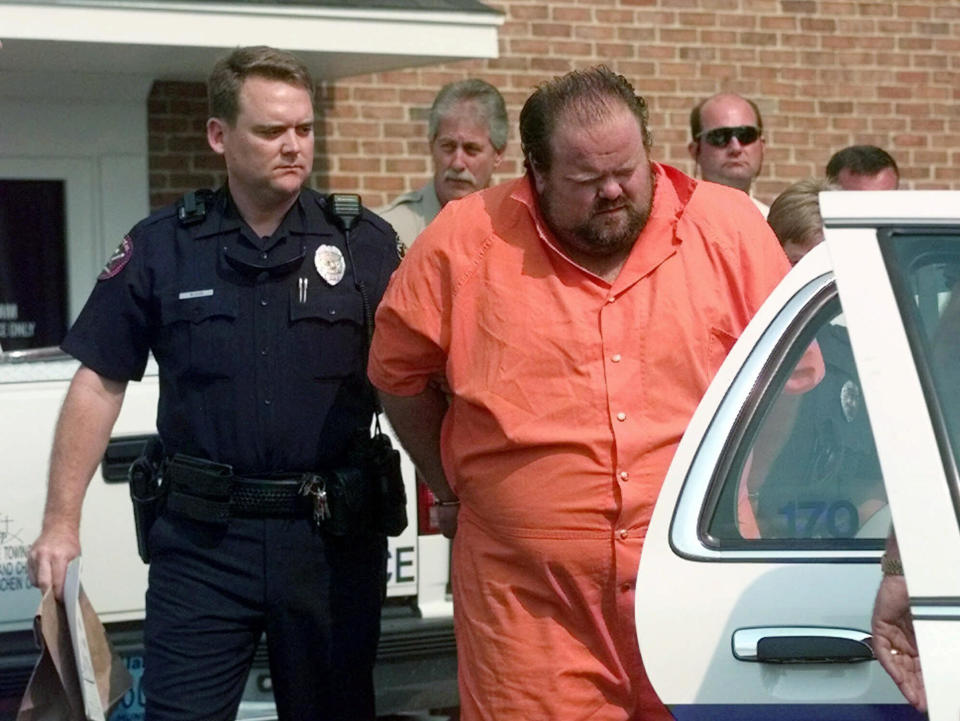Nitrogen gas execution set for inmate who survived lethal injection

Alabama has scheduled a date for the upcoming execution of Alan Eugene Miller, a convicted murderer who, after surviving a previous execution attempt, is set to become the second inmate ever put to death using nitrogen gas in the United States. Nitrogen hypoxia is a controversial method allowed only in a handful of U.S. states that essentially aims to asphyxiate the prisoner with a gas mask devoid of oxygen.
The first person executed this way was Kenneth Smith, who was put to death in late January, marking the state's first use of nitrogen gas for an execution. Although nitrogen hypoxia had technically been authorized as an alternative execution method for several years in Alabama, along with Oklahoma and Mississippi, no one was actually executed with the toxic gas before Smith earlier this year.
Miller's execution is set for Sept. 26, according to a memo issued Wednesday by the office of Alabama Governor Kay Ivey that specified nitrogen hypoxia as the method. Miller was convicted of killing three men in 1999.
Writing to Alabama Department of Corrections Commissioner John Hamm with a time frame for the execution — beginning at midnight on Sept. 26 and ending at 6 a.m. local time the next morning — Ivey said that she has "no current plans to grant clemency in this case" but nonetheless has "authority under the Constitution of the State of Alabama to grant a reprieve or commutation, if necessary, at any time before the execution is carried out."
Ivey's memo followed a decision last week handed down by the Alabama Supreme Court that authorized the execution by nitrogen gas and approved a request from the state's attorney general asking that the governor be allowed to officially set the date. Alabama Attorney General Steve Marshall filed that request in February, writing at the time that the state "is prepared to carry out the execution of Miller's sentence by means of nitrogen hypoxia," and adding, "it is once more the appropriate time for the execution of his sentence."
Miller, 59, has been on death row in Alabama for decades, since a jury found him guilty of killing three people in August 1999 and recommended in a vote that he should be executed for the crimes. While working as a delivery truck driver for a company called Ferguson's Enterprises in Pelham, Alabama, which near Birmingham, authorities said that Miller fatally shot two of his colleagues, Christopher Yancy and Lee Holdbrooks, at the company building. He went on to fatally shoot another man, Terry Jarvis, at another location in the same city.

Witnesses recalled after the fact that Miller had accused all three men of "starting rumors" about him before shooting each one multiple times, court filings show. Descriptions of the murders in those filings are gruesome and disturbing, and the court ultimately found during Miller's trial that his crimes were especially heinous.
Alabama has already attempted to execute Miller. His 2022 execution was stopped because of time concerns and trouble accessing his veins.
Miller was one of at least four death row prisoners in the state whose lethal injections were botched or halted over the last four years. Mishaps inside the execution chamber called into question Alabama's ability to carry out executions at all. Amid a shortage of lethal injections made available for capital punishment, the state has turned to nitrogen hypoxia as another potential option.
While it was not Smith's decision to die by nitrogen gas, Miller chose this execution method for himself and in fact fought for that choice in court. Ahead of the failed lethal injection attempt in 2022, a federal judge issued an injunction blocking Alabama from going through with Miller's execution after the inmate filed a lawsuit claiming that he had elected nitrogen hypoxia as his preferred means to die but the state had lost his paperwork.
Justices in a subsequent decision lifted that injunction, and the state tried to execute Miller shortly after. Alabama prison officials had said they did not have a record of any paperwork, and suggested that Miller was looking to delay his sentence. Death row inmates in Alabama were given a window of time to elect to die by nitrogen hypoxia after the state authorized it as an execution method in 2018.
Critics of nitrogen hypoxia point to its potential to cause unnecessary harm to the condemned and even endanger others present in the chamber.
Before Smith's nitrogen execution in January, advocates in the U.S. and abroad spoke out against the Alabama prison system for allowing an untested method to proceed, with the United Nations' chief human rights official even going so far as to say that nitrogen asphyxiation "could amount to torture or other cruel, inhuman or degrading treatment or punishment under international human rights law."
Key takeaways from Stormy Daniels' testimony in Trump trial
What we learned from Stormy Daniels' testimony in Trump trial

